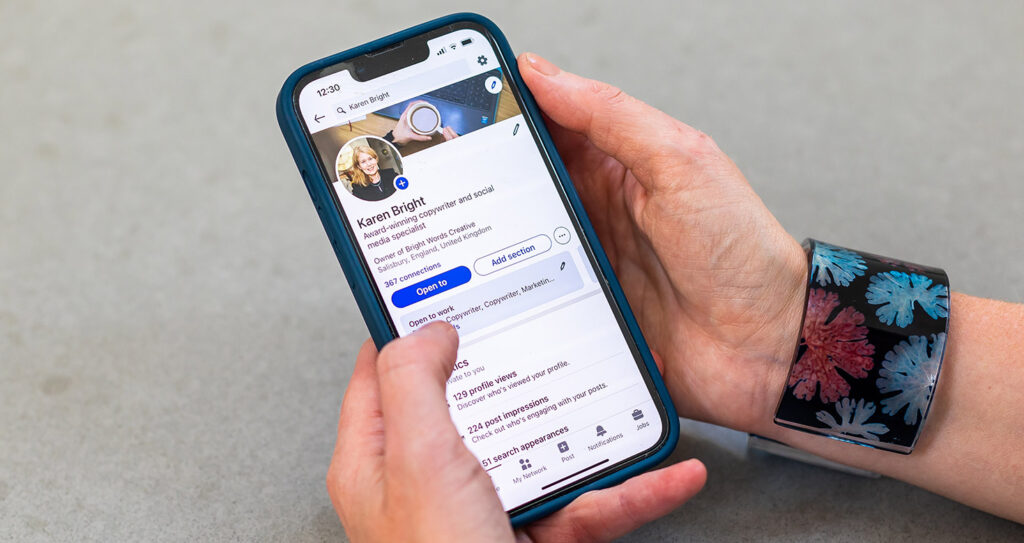It’s the AI tool that everyone’s talking about. Many industry commentators are calling ChatGPT the biggest thing since Google launched its search engine.
You can’t fail to have read about this new chatbot on social media or in the news. It’s really a game-changing tool. ChatGPT had more than one million users within five days of its launch – with 616 million website visitors at the last count. More than 75% of marketers are planning to use ChatGPT in their marketing but only 40% have done so to date. So, what role could ChatGPT play in your marketing?
In this blog, I’ll be guiding you through the pros and cons.
What is ChatGPT?
Launched by OpenAI in November 2022, ChatGPT is an AI chatbot tool.
But this is no ordinary chatbot. It uses natural language processing and machine learning to understand and respond to questions on a whole host of topics and generate high-quality written text in response. It can be used to generate blog topic ideas, social media posts, marketing strategies, email marketing, SEO keywords and more.
ChatGPT was trained on a large body of text from sources such as books, journals and Wikipedia (but only data back to 2021). ChatGPT contains 570 gigabytes of text data – roughly 164k times the number of words in the Lord of the Rings series.
The written responses almost sound like they’ve been written by a human, not a robot. In fact, recent research from Tooltester shows that 53% of respondents could not identify content purely made by AI chatbots, like ChatGPT.
Great for generating ideas
ChatGPT is undoubtedly a brilliant ideas generator. I asked ChatGPT to suggest some blog topics for a business selling solar panels and here’s what it came up with.
These suggestions aren’t bad – they cover a range of different themes, such as the benefits, future trends, maintenance and care.
The titles are a little generic and broad. These topics have been covered endless times before so I’d want to find a new angle – something that would entice my readers to click on the link and read my blog.
More specific keywords in the titles would also provide more targeted traffic from search. I’d want to understand more about the SEO value of these topics. ChatGPT doesn’t provide me with that information.
But, on the whole, I think that this gives me a good starting place for blog research.
Generating ideas for marketing campaigns
Next, I asked ChatGPT to give me some marketing ideas for promoting a bespoke joinery and furniture business.
Here are the suggestions.

This summary actually offers some really good suggestions – such as highlighting the unique features of the products, sharing the company’s business story and using social proof to help build trust and credibility. It also has some good suggestions for customers to target.
Email marketing subject line suggestions
Next, I asked ChatGPT to produce some subject line options for an email marketing campaign for the same business. It came up with 10 suggestions.

I’m not hugely impressed with these titles. I can’t imagine using ‘Unleash your creativity with our customer joinery’ as an email subject. It sounds a bit naff.
That said, I quite like some of the phrases in the list. ‘Step into our workshop – the process behind our handmade furniture’ would work well in a blog about how the items are made.
I quite like number 10 (‘furniture that tells a story’) – this might work if you were telling an entertaining anecdote about a customer request or a piece that’s been passed down through the generations.
So, I would use these titles to help me generate marketing ideas – but I wouldn’t use the wording in an email subject line.
Writing blog content using ChatGPT
Finally, I asked ChatGPT to write a blog on timber-framed windows (one of the target areas for this particular business). Here’s the first section of the content:

It’s a reasonable article – fairly well-written and concise. But, once again, the content is very generic and lacking in any statistics or references. It’s not offering any new insights or angles. Suggesting that I clean the windows to look after them is not exactly earth-shattering stuff, is it?
Would I buy from a company writing about topics in this way? Probably not.
But, I can see the value in ChatGPT to help with structuring your blog and producing some skeleton ideas.
Could ChatGPT replace human marketers?
Many commentators have been speculating whether ChatGPT could eventually replace human marketers, particularly copywriters. It’s certainly a very powerful tool for generating ideas for content marketing but it’s not causing me any sleepless nights yet. In common with most tools, I would never use it in isolation.
No references or links
One of the big drawbacks is that there are no links or references to original sources – although ChatGPT draws on large datasets of Internet source material, it is not connected to the Internet. This sounds alarm bells for me. I’m always meticulous about checking any figures or statistics and including original references – this was drummed into me when I started working in comms many moons ago.
So, I’d be extremely cautious about including any content that doesn’t have links to original reference sources.
What if ChatGPT’s content has been plagiarised from another source? There are huge legal implications for just copying and pasting information from ChatGPT. If you’d like to know more about this, read Michelle Garrett’s excellent blog on this very topic.
Misleading content
Some of the content is also misleading and way out of date Here’s ChatGPT’s response to a question I asked about LinkedIn.

For information, LinkedIn now has 900 million members – way in excess of the 740 million quoted by ChatGPT – that’s because it was trained on data that only goes back to 2021.
Penalties for auto-generated content
It’s inevitable that ChatGPT will be used to generate free blog content at speed – but at what cost? There is the potential for thousands of businesses to publish identical blogs on the same topics. Search engines are sophisticated enough to spot this kind of auto-generated content and, with Google tightening up its spam policies and following its recent Helpful Content update, you may find that this sort of content generation causes you more harm than good
In summary, ChatGPT is a powerful tool to help you with ideas for content marketing – blog topics, keyword suggestions and even tactics for positioning your business. But, just like any other tool, it’s there to assist. It’s not a replacement for a human being…yet.
Test it out and see what you think. I’d love to know your thoughts.
Please note: since this article was first published, GPT-4 has been launched. This does have some enhancements over ChatGPT. But, at the current time, it is only available using a paid subscription.


